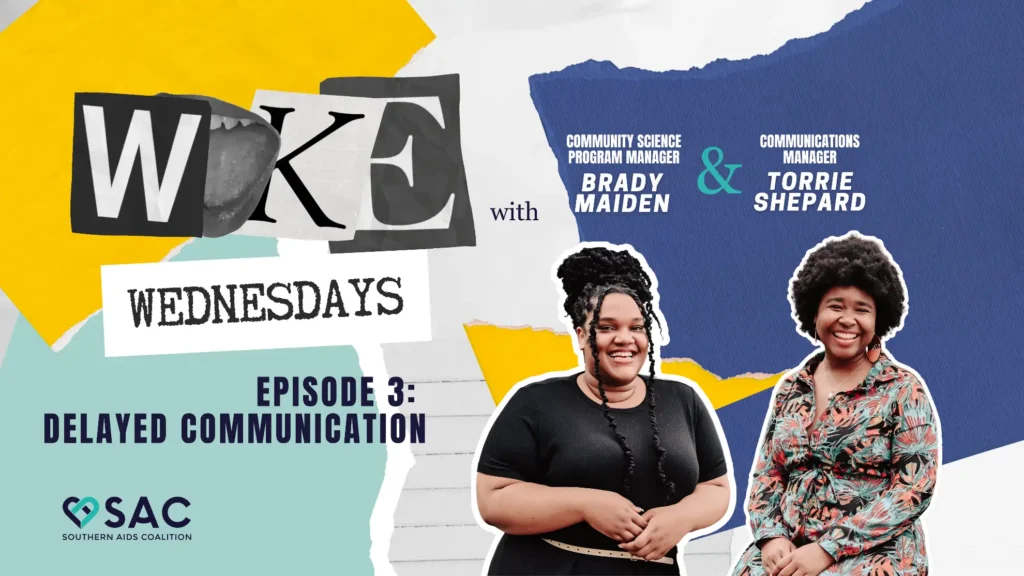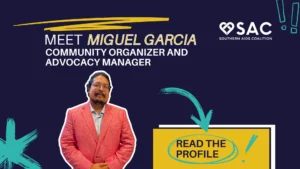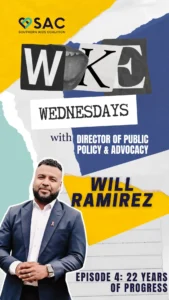By: Brady Maiden, Community Science Program Manager, & Torrie Shepard, Communications Manager
We have a leg up from Juneteenth and Stonewall due to technology, but old biases and the way we process information haven’t adapted as much. Information is still delayed, or rather, withheld.
We can’t imagine the impact of what it meant to hear the message in Galveston Bay, Texas, on June 19, 1865, that all enslaved people were free by executive decree.
The moment of joy, and excitement (almost the equivalent of breaking out into song at the end of “The Wiz”) but then to hear that the Emancipation Proclamation freed enslaved people in the South on January 1, 1863. So, for over 2 years some folks in the South were free, while others were not.
What would be the impact of our ancestors hearing the message 2 years before?
In June, we honor Pride Month by remembering the history and struggles of queer pioneers who were exhausted, angry, and had reached their breaking point from being denied their existence. On June 28, 1969, the Stonewall riots began, marking six days of protest where the LGBTQIA+ community voiced their anger, frustration, and pain at being ignored, harmed, and disregarded as human beings. These events sent a powerful message: they had endured enough.
Our Woke Wednesday moment is looking at the impact of communication and how relaying the message sooner and with intention will benefit communities. But what helps us to shift the message of HIV and how we end the epidemic?
Communities need the message to make an informed decision on how they act and create their agency. As we reflect on this history, we must ask ourselves how we can change the way we communicate in the present to center queer voices alongside others, ensuring they are heard and respected.
Neither the language nor policies in the United States, have been kind as well as inaccurate in highlighting queer people. For the last 43 years, HIV has been miscategorized as a certain “type” of person, rather than recognizing that everyone is HIV possible and that the virus is not an identity of the person. From 1981 to 2024 we’ve seen progress, but how have we talked about it?
Millions of voices want to be heard and we can’t achieve or end this epidemic if we only channel through one voice. What are the ways that we can continue to communicate so that we are hearing the message?
- Democratization of Voices: At SAC, we understand that you cannot end the epidemic without addressing stigma. Through storytelling and conversations, we stay rooted in community. Our LEAD Academy and Younity Workshops provide tools for People Living with HIV to show up authentically as themselves and educate their communities causing a chain effect of community “Teach Backs” across the South.
- More than “Thoughts & Prayers”: When 12 of the 16 Southern states are in the bottom half of education ratings, we will need more than “thoughts and prayers”. Expanding perspectives, listening to learn instead of responding, and valuing all perspectives in the room—we need more safe, empathetic conversations. Our Community Science series throughout the South works to engage various cities in multi-cultural conversations. These conversations have led to many people connecting their needs with preventative and healing solutions.
- Understanding Media Literacy: The National Association of Media Literacy Education lists key questions to ask when considering media experiences. We must consider the context when we share stories about children raising money to clear school lunch debt or billionaires providing funding for lower-income kids to go to private schools. NAMLE guides us to question if there are implied values if the experience is a fact or an opinion, and even the method of communication. We must think critically about the media we consume and the information we bring back to our communities.
Those few ways aren’t simple solutions. Everything worthwhile involves community, care, and a willingness to change. We have a leg up from Juneteenth and Stonewall due to technology, but old biases and our ways of processing information haven’t adapted as much. Information is still delayed, or rather, withheld.
In the HIV community, we know prevention and stigma reduction are the key. People are speaking up and creating initiatives to get their communities across the South focused on health (including sexual health). We’re not done imagining ways to end the epidemic when it comes to research as well—the Red Ribbon Registry, community conversations about what an HIV Vaccine can do, what medications people can get on, and new research on Broadly Neutralizing Antibodies.
Like “The Wiz”, our community asks, “Can you feel the brand new day?” If you can’t, community can help you. If you don’t feel like you have a community, join us, stay informed, and participate in our conversations. We commemorate Juneteenth and Stonewall by recognizing there are more conversations that we must have to reach liberation.



